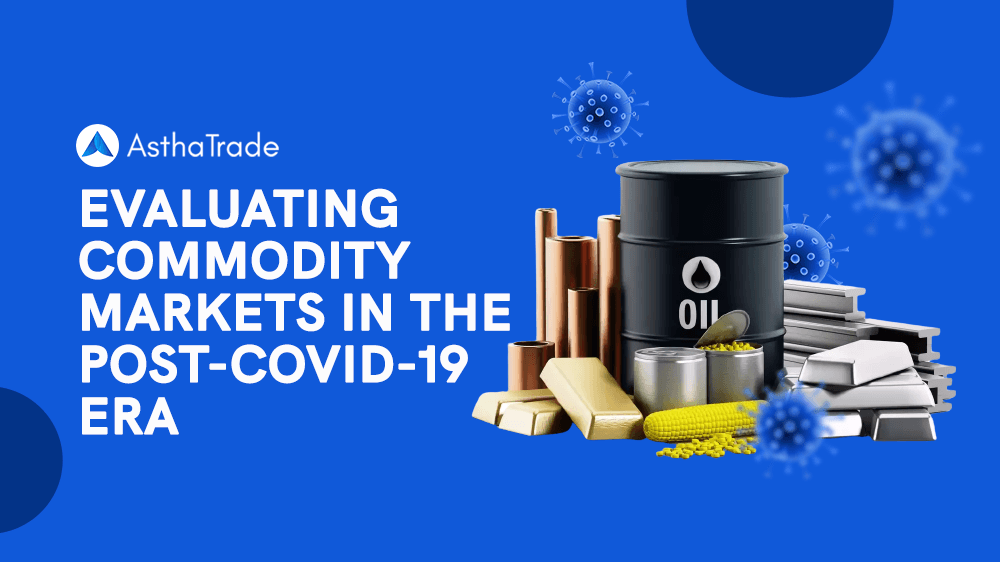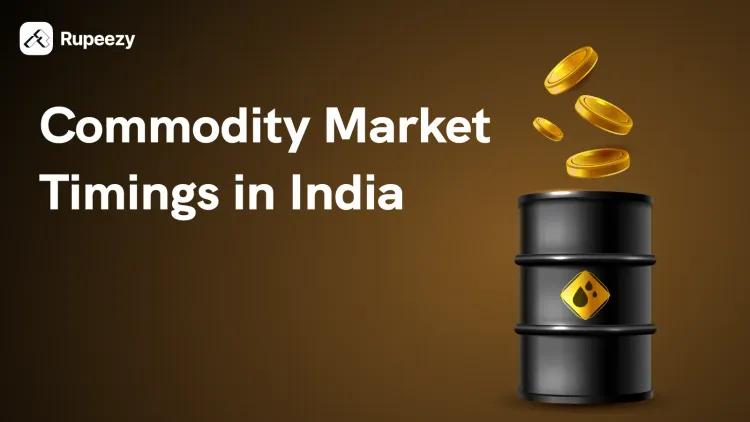Commodity Transaction Tax in India - Rate and Calculation


00:00 / 00:00
One of the important taxes levied while trading in the commodity market is the Commodity Transaction Tax (CTT). This tax is specifically applicable to futures contracts of non-agricultural commodities such as gold, silver, crude oil, and copper.
CTT was introduced in India in the year 2013 to regulate trading and increase tax revenue. Due to the rapidly increasing trading activity in the commodity market in the last few years, the impact of CTT is now clearly visible on trading costs and profits.
This blog explains the concept of the commodity transaction tax in India, applicable cases, the current rate, and how it is calculated. So let’s dive in!
What is Commodity Transaction Tax (CTT)?
Commodity Transaction Tax (CTT) is a tax imposed by the Government of India on the sale of non-agricultural commodity futures traded on recognized exchanges like MCX (Multi Commodity Exchange). It is charged only when you sell such contracts. CTT applies specifically to futures on metals, energy, and other non-agricultural commodities.
The purpose of the commodity transaction tax is to regulate trading and bring transparency through tax. It is directly applicable to the value of the trade, and the brokerage system deducts it at the time of transaction and deposits it to the government.
How Commodity Transaction Tax Works
CTT is levied at a fixed percentage on the total value of the trade. For example, if crude oil futures are being sold in a trade and the total value of that trade is Rs. 50 lakh, then Rs. 500 CTT will be charged at the rate of 0.01%.
Why was the Commodity Transaction Tax Was Introduced?
Commodity trading was growing rapidly in India, but for a long time, no direct tax was imposed on it. On the other hand, Securities Transaction Tax (STT) was already applicable to equity and stock trading. In such a situation, there was a disparity between the two markets regarding the tax structure.
In the year 2013, the Government of India introduced CTT so that this disparity could be eliminated and commodity trading could also be brought into the tax net. Its purpose was not only to collect taxes, but also to bring regulation and transparency to the entire trading system.
Expansion of tax net: Through CTT, the government ensured that just like STT is levied on stocks, tax should also be applicable on commodity futures. This made the tax system more balanced and fair.
Strengthening tax revenue: Given the increasing volume in the commodity futures market, it became necessary for the government to get a stable tax income from it. By implementing CTT, the central government developed a new source of revenue.
Transparency and tracking: Untaxed trades are often prone to speculation and tax evasion. CTT helped to control this, as all transactions are now regulated and recorded.
The introduction of this tax not only brought economic benefits to the government but also increased accountability and credibility in the entire commodity trading system.
Commodity Transaction Tax Rate in India
The current commodity transaction tax rate in India is 0.01%, applicable only to sell-side trades of non-agricultural commodity futures. The government has not made any changes to the Commodity Transaction Tax (CTT) rate in FY 2025.
Key facts for FY 2025:
CTT applies only to the sell side; buy-side trades are exempt from it.
The rate is uniformly applicable to all non-agricultural commodities.
This tax is levied only on futures contracts, not on the spot or physical market.
The purpose of CTT is not only to collect revenue but also to better monitor market activities. This fixed rate of CTT makes the commodity derivatives market organised and responsible, thereby bringing greater transparency in trading.
How Commodity Transaction Tax Calculation Is Done for Trades
Commodity Transaction Tax calculation is simple, but a clear formula and example are necessary for proper understanding. CTT is applicable only on the sell side, i.e., when a commodity futures contract is sold.
CTT Formula
CTT = Sale value of trade × CTT rate
CTT Calculation
For example, if an investor sold 100 barrels of crude oil futures at Rs 3,000 per barrel, and let’s assume the CTT rate is 0.01%, then the CTT calculation will be as follows:
CTT = 100 × 3,000 × 0.01% = Rs. 30
Variation with Volume: As the trading volume or lot size increases, the CTT amount also increases. Hence, more tax has to be paid on larger transactions.
Commodity | Quantity (Units) | Price per Unit (Rs. ) | Sale Value (Rs. ) | CTT Rate (%) | CTT Amount (Rs. ) |
Crude Oil | 100 barrels | 3,000 | 300,000 | 0.01 | 30 |
List of Commodities Where CTT Is Applicable
Commodity Transaction Tax in India is applicable only on selected non-agricultural commodities, that too when the trade is on the sell side. This tax is applicable only to trades that take place on recognized exchanges, such as the MCX (Multi Commodity Exchange).
Agricultural commodities such as wheat, gram, mustard, etc., are completely exempted from this tax. The government aims to save farmers and agri-businesses from an additional tax burden.
CTT is applicable to these non-agri commodities:
Gold Futures
Silver Futures
Copper Futures
Crude Oil Futures
Zinc, Lead, Nickel
Natural Gas
Commodity Transaction Tax Example: If crude oil futures worth Rs. 20 lakh are sold, then Rs. 200 CTT will be charged at the rate of 0.01%. Agri commodities like wheat, guar, peanuts, etc., are completely tax-free, i.e., no CTT is charged on them.
How Commodity Transaction Tax Affects Commodity Trading in India
Commodity Transaction Tax (CTT) has impacted both the cost and behaviour of trading in commodity markets. Since this tax applies only on the sell side, it adds additional cost when selling futures contracts. This makes trading expensive for investors with small and medium trading frequencies.
Key Effects of CTT
Increased total cost of trading: CTT leads to additional tax on every sale, which increases the total cost of trading.
Change in hedging strategies: The tax on frequent trades increased the cost of hedging, causing traders to adjust their strategies.
Market liquidity affected: The higher cost has led some small and frequent traders to reduce trading, which impacts market liquidity.
Challenge for HFT traders: The imposition of tax on small gains has forced high-frequency traders to reconsider their trading models.
CTT has helped bring transparency and discipline in commodity trading, but at the same time has also limited the activity of some traders by increasing the cost of trading. In this situation, it has become necessary for traders to adapt their trading strategies according to the new tax structure.
CTT vs STT: Key Differences
Commodity Transaction Tax and Securities Transaction Tax are both applicable taxes on transactions in India, but differ in scope, rates, and applicable asset classes. CTT is primarily levied on commodity futures trading, while STT applies to shares, derivatives, and mutual fund trading. For different types of investors with diversified portfolios, understanding both these taxes is essential so that they can properly manage their trading costs and strategies.
Parameter | Commodity Transaction Tax (CTT) | Securities Transaction Tax (STT) |
Applicable Market | Commodity Futures Market | Equity, Equity Derivatives, Mutual Funds |
Asset Type | Non-agricultural commodities futures | Shares, Stocks, Equity Options, Mutual Funds |
Tax Rate | 0.01% on the sell side of futures contracts | Varies: 0.1% (Equity Delivery), 0.025% (F&O) |
Who Pays | Seller of commodity futures contracts | Buyer or seller, depending on transaction type |
Purpose | Reduce speculation and increase market transparency | Revenue generation and reducing excessive trading |
Introduced Year | 2013 | 2004 |
Who Pays CTT: Traders or Brokers?
Commodity Transaction Tax (CTT) is paid directly by traders, while brokers are responsible for collecting it and depositing it to the government. When a trader sells a commodity futures contract, brokers deduct CTT on this transaction. This tax is automatically deducted from the trader's account, and brokers remit it to the government in the relevant financial year. After trading, brokers provide separate information about CTT in their contract notes, so that the trader knows how much CTT is included in the total transaction. This process brings transparency in tax collection, and traders get the correct accounting of tax.
Conclusion
Commodity Transaction Tax (CTT) has increased transparency by bringing trading into a more regulated and taxed framework. This requires investors to now analyse the cost of trading in-depth. For active traders in the futures market, CTT has become an important factor that needs to be managed wisely.
FAQs
Q1. Is Commodity Transaction Tax a direct or indirect tax?
Commodity Transaction Tax is a direct tax as it is directly levied on the person who trades in commodity futures.
Q2. Is CTT tax-deductible while filing income tax returns?
Yes, CTT can be shown as a business expense if you treat trading as a business. It can reduce your total taxable profit, but it cannot be claimed directly as an income tax exemption.
Q3. How does CTT impact your overall trading cost?
CTT increases your overall cost of trading, especially if you are a frequent or high-volume trader. This tax is levied on every sale transaction, which can impact profits.
Q4. Is CTT applicable to agricultural commodity trades?
No, CTT is not applicable to agriculture-based commodities (like wheat, paddy, etc.). This tax is levied only on non-agricultural commodity futures.
Q5. Who is responsible for paying CTT: trader or broker?
CTT is paid by the trader, but its collection and remittance is the responsibility of the brokers. The tax is deducted directly from the trader's account.
Check Out These Related Articles |
The content on this blog is for educational purposes only and should not be considered investment advice. While we strive for accuracy, some information may contain errors or delays in updates.
Mentions of stocks or investment products are solely for informational purposes and do not constitute recommendations. Investors should conduct their own research before making any decisions.
Investing in financial markets are subject to market risks, and past performance does not guarantee future results. It is advisable to consult a qualified financial professional, review official documents, and verify information independently before making investment decisions.

All Category









